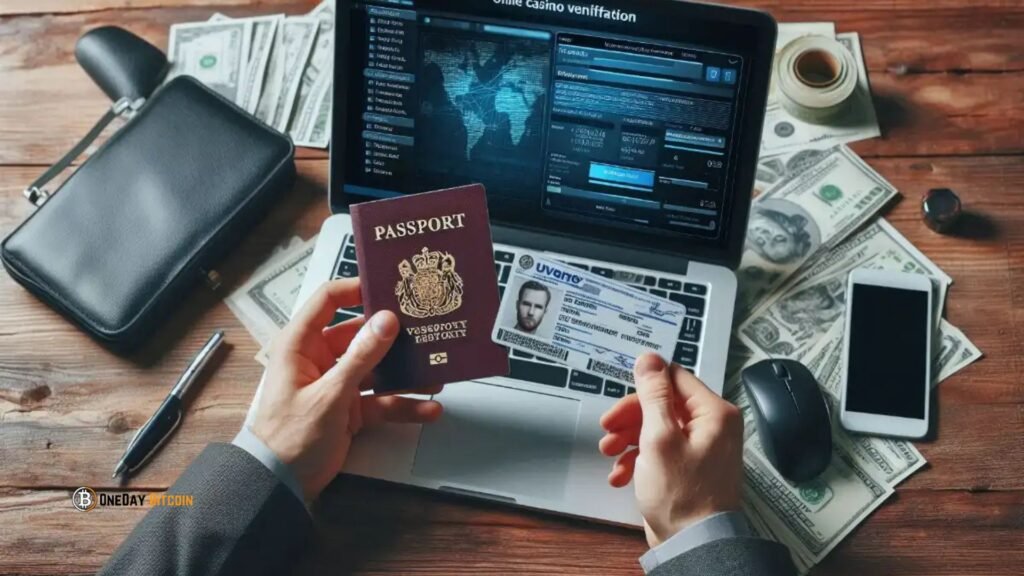One of the most common requirements for entering a casino or gambling is showing legitimate identification. If you want to make sure you follow the casino’s rules, whether going to a real-life casino or signing up for an online one, you need to know what kinds of ID are allowed. Many tourists and gamblers ask, “Will casinos accept a passport as identification?”
This piece will discuss the importance of ID in casinos, whether a passport is a valid form of ID, and what other ID requirements may be in different casinos, such as local and online casinos. We’ll also look more closely at international casinos and how ID rules can differ from country to country.
The Importance of Identification in Casinos
Casinos are heavily regulated environments, and their operations must comply with national, state, and local laws. Identification is required for several reasons, including:
- Age Verification: Most jurisdictions have legal age requirements for gambling, ranging from 18 to 21 years old. Casinos must verify that players meet these minimum age requirements before allowing them to gamble.
- Preventing Fraud and Crime: Casinos must ensure that individuals participating in gambling do not engage in fraudulent practices, money laundering, or other illegal activities. Proper identification helps casinos verify player identities and comply with anti-money laundering (AML) regulations.
- Tracking Winnings and Taxes: In many countries, large gambling winnings are subject to tax reporting. Casinos may request identification to track significant payouts for tax purposes and report them to the relevant authorities.
- Membership and Rewards Programs: Many casinos offer loyalty programs where players can earn points and rewards. Identification helps verify membership and track player activity for these programs.
Because of these important factors, casinos require all players to present valid identification before entering or participating in gambling activities. But will your passport suffice?
Are Passports Accepted in Casinos?
The answer to whether casinos accept passports is generally yes, but there are nuances to consider based on the type of casino, location, and specific policies of the establishment.

Land-Based Casinos:
A passport is a valid form of identification in most land-based casinos worldwide. This is especially true if you are a guest from another country and don’t have a driver’s license or ID card from that country. A passport issued by the government with your photo and date of birth is generally enough to prove who you are and your age. However, all casinos may not accept passports, depending on the country or the casino’s rules. Take a closer look at this:
- United States: Most casinos in the U.S., especially those in major gaming hubs like Las Vegas, Nevada, and Atlantic City, New Jersey, will accept passports as a valid form of ID. However, it’s important to note that U.S. residents usually must present a state-issued ID or driver’s license. Foreign nationals can use their passports for identification.
- Canada: In Canada, casinos typically accept passports from foreign visitors as valid identification. On the other hand, Canadian residents may be asked for government-issued IDs like driver’s licenses.
- Europe: European casinos are generally more flexible in accepting passports, particularly in tourist-heavy destinations like Monaco and the UK. However, some casinos may request a secondary form of ID in addition to your passport to comply with local regulations.
- Asia: Casinos in countries like Macau and Singapore usually accept passports from foreign tourists, especially given their large international clientele. Local residents may have to provide additional identification based on the country’s laws.
Online Casinos Accept Passports
More and more people are gambling online. Thus, these establishments must adhere to local regulations by requiring players to provide identification. Upon account creation or large withdrawals, certain online casinos may request identification as a form of verification. Recognizing passports as valid forms of identification in such cases is common practice.
- Account Creation: Many online casinos require you to upload a scanned copy of your ID, such as a passport, when creating an account. This is to confirm your age and nationality, ensuring compliance with age restrictions and other legal requirements.
- Withdrawals: Some online casinos, especially those regulated by strict gaming authorities, may require additional verification when you request withdrawals. Uploading your passport as proof of identity is usually accepted.
- KYC (Know Your Customer) Procedures: KYC is mandatory in most regulated online casinos. The casino may ask for additional documentation, such as a utility bill or bank statement, alongside your passport to verify your address and financial information.
Additional Forms of ID Casino
A passport is usually enough to get into most casinos, but sometimes, they may ask for something else, like a driver’s license, national ID card, or other government-issued ID. This usually happens in places with very strict rules.
For example:
- In the United States, you may be asked to provide a secondary form of ID in some states, especially if your passport lacks certain security features or the casino’s security personnel are unfamiliar with passports from your country.
- In Canada, casinos may request a passport and a secondary proof of address (e.g., a utility bill) to comply with their anti-money laundering policies.
- In some European countries, you might need to provide a utility bill or bank statement alongside your passport to prove residency.
What to Do If Your ID Is Not Accepted
If a casino won’t take your ID, don’t worry. There are a few things you can do to fix the problem. First, always have a backup form of ID with you, like a driver’s license or national ID card. This can help keep things simple. Bring more than one form of ID when you travel to ensure you can get in easily. Second, call the casino ahead of time to ensure you know exactly what ID they need, especially if you’re unsure if your card or another form of ID will work. There are many casinos that will make it clear what papers are needed. Lastly, if you’re having trouble using traditional methods to prove your name in online casinos, you might want to look into digital ID verification services. By getting ready ahead of time and having backup plans,
Legal Implications and Global Variations
The legal requirements surrounding identification and passports vary based on the casino’s location and the country’s specific gambling laws. It’s important to note that:

- Age Requirements Vary: The legal gambling age varies between jurisdictions. For example, the minimum age in the United States is 21, while many European countries allow gambling from the age of 18. You must meet the legal age requirement in the jurisdiction where the casino is located.
- Country-Specific Regulations: Some countries have stricter gambling laws and regulations, which may require additional identification checks, even when using a passport. This is often the case in jurisdictions with stringent anti-money laundering (AML) laws.
- Travel Restrictions: If you’re visiting a casino in a foreign country, ensure your passport is valid and complies with any visa or travel requirements for that country. You may not be allowed entry into a casino if your passport is expired or invalid.
Also Read: How to Win Money at the Casino?
In summary
Finally, passports are recognized as valid forms of identification. The majority of casinos are located in physical locations or on the Internet. This is particularly true for gamers from other countries. But before you enter any casino, make sure you have a second form of identification on hand and research its specific policies. If you want to play games without problems, it’s important to be well-informed and ready for everything.


